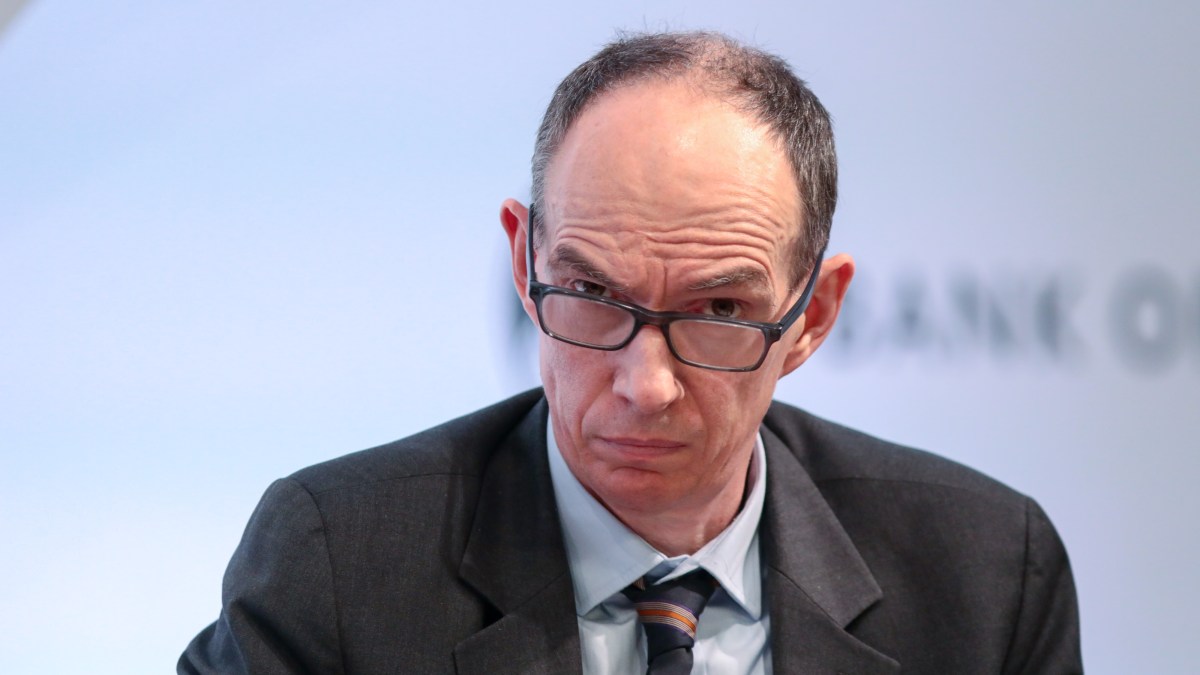Interest rates are likely to fall further after the UK passes an inflation “hump” caused by a rise in food and basic living costs, according to a Bank of England rate-setter.
Sir Dave Ramsden, a deputy governor at the Bank of England, said he was confident that inflation would fall back to the central bank’s 2 per cent target amid a weakening in the jobs market and slower wage growth.
“We have seen the labour market continuing to loosen with wage growth normalising and I see that as supporting a continuation of the core disinflation process. And that anchors my view on the inflation outlook”, Ramsden said during a discussion on the issue organised by the European Central Bank in Frankfurt.
Figures from the Office for National Statistics show that unemployment is close to a four-year high of 4.7 per cent and that wage growth eased to the lowest level in three years in the past quarter.
Ramsden said that the government’s decision to increase payroll taxes by £25 billion had put upward pressure on food inflation, a long-held assumption within the Bank of England. Food inflation hit 5.1 per cent in August, a 19-month high, according to the ONS.
The Bank has forecast that headline inflation will peak in September at 4 per cent, up from 3.8 per cent at present.
Ramsden added that household expectations for future inflation had risen sharply because of an increase in grocery prices, which tend to be more obvious to consumers compared with price increases for other products. According to the Bank, at 3.8 per cent, long-term household inflation expectations have hit their highest level since 2019.
• David Smith: High expectations make it harder to get inflation down
“I think the gradual and careful approach that the MPC [rate-setting committee] have taken to removing policy restraint remains appropriate and I see scope for further removal of policy restraint looking ahead,” Ramsden added.
“I do remain confident that we’re going to get inflation back to target with the current setting of … interest rates which is still in restrictive territory, and also given the market expectations that we condition our forecast on.”
His comments echo those made by Swati Dhingra, an external member of the monetary policy committee, who said that the UK was not suffering from a “particularly British” inflation problem. Eurozone and US inflation stand at 2 per cent and 2.9 per cent respectively.
Writing in The Times, Dhingra said: “The effects of the shocks driving the UK’s current high inflation relative to Europe will fade, and thus, we should not be overly cautious about cutting interest rates.”
Ramsden voted with the seven-member majority to keep rates unchanged at 4 per cent at the Bank of England’s meeting this month. Dhingra, along with Alan Taylor, another external panellist, wanted to lower borrowing costs by a quarter of a percentage point to 3.75 per cent.
The Bank’s rate-setters, who next meet on November 6, will leave rates unchanged for the remainder of the year, according to the average forecast among investors.

